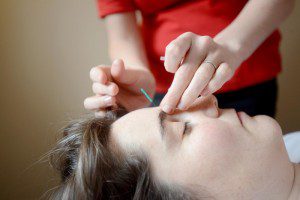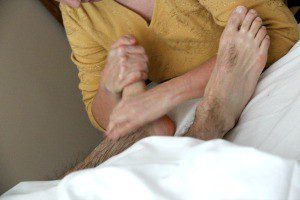3 Complementary Treatments to Support Cancer Care
Acupuncture

According to the National Cancer Institute, acupuncture can be used as a complementary therapy in system management of cancer-related symptoms such as side effects to chemotherapy, radiation therapy, boosting blood cell count and improve natural killer cell activity.
The National Institutes of Health have confirmed that there is evidence acupuncture is effective in postoperative and chemotherapy nausea and vomiting.
In a study done by Hematology/Oncology Clinics of North America, researchers found in a randomized placebo-controlled trial, acupuncture was proven effective for cancer patients with a variety of chronic pain and aiding in pain management. Acupuncture is found to have positive results as a complementary method to pain relief.
Acupuncture is a non-invasive treatment that works by addressing the body as a whole. Acupuncture causes the brain to release natural pain relieving endorphins, as well as serotonin and dopamine. This results in pain relief and relaxation.
Massage therapy

Researchers from the Rehabilitation and Integrative Medicine at MD Anderson Cancer Center found massage therapy to significantly reduce the pain of cancer and chemotherapy treatments, more so than conventional care.
Many cancer patients who receive chemotherapy report adverse side effects such as nausea, pain, muscle aches, weakness and fatigue. When these patients are treated with massage therapy, however, both the frequency and severity of these symptoms begins to subside. It doesn’t take many sessions before patients experience a positive improvement in their symptoms. While the study mentioned above lasted for seven weeks, many patients report an improvement in their symptoms after just a single session of massage therapy.
Lymphatic Drainage

Lymphedema, a swelling in the arms or legs, is common among patients who have received treatment for breast cancer. Manual lymphatic therapy works by using a light touch to help move fluid out of the tissues. Although lymphedema is not curable, it can be manageable with lymphatic drainage treatment.
The lymphatic system is essential for overall health. This system absorbs fluid, toxins and waste from tissue where it can pass through lymph nodes to be filtered. Lymphedema happens when the lymphatic system is blocked. The drainage therapy can help release these blockages to let fluid flow as it should.





